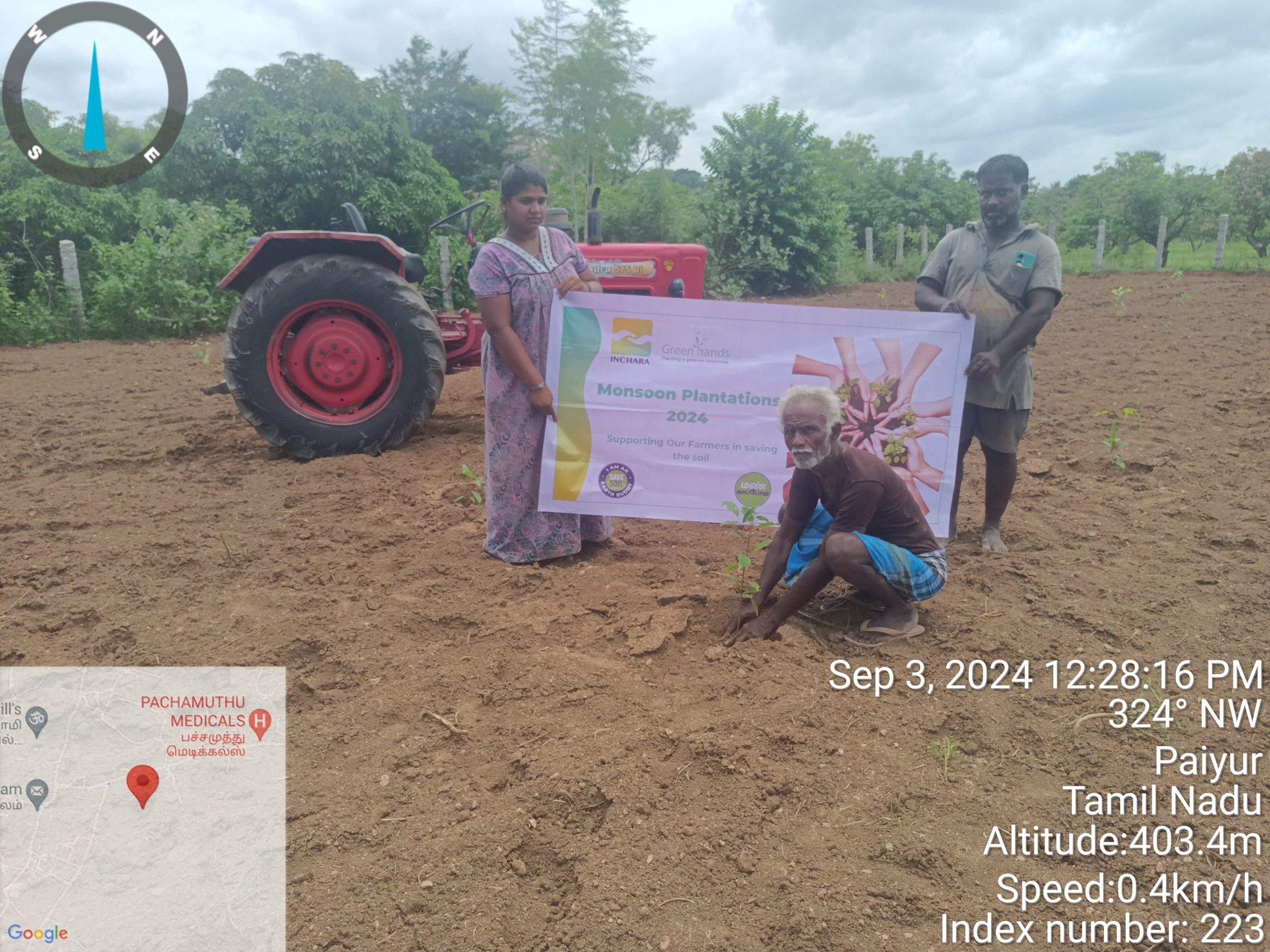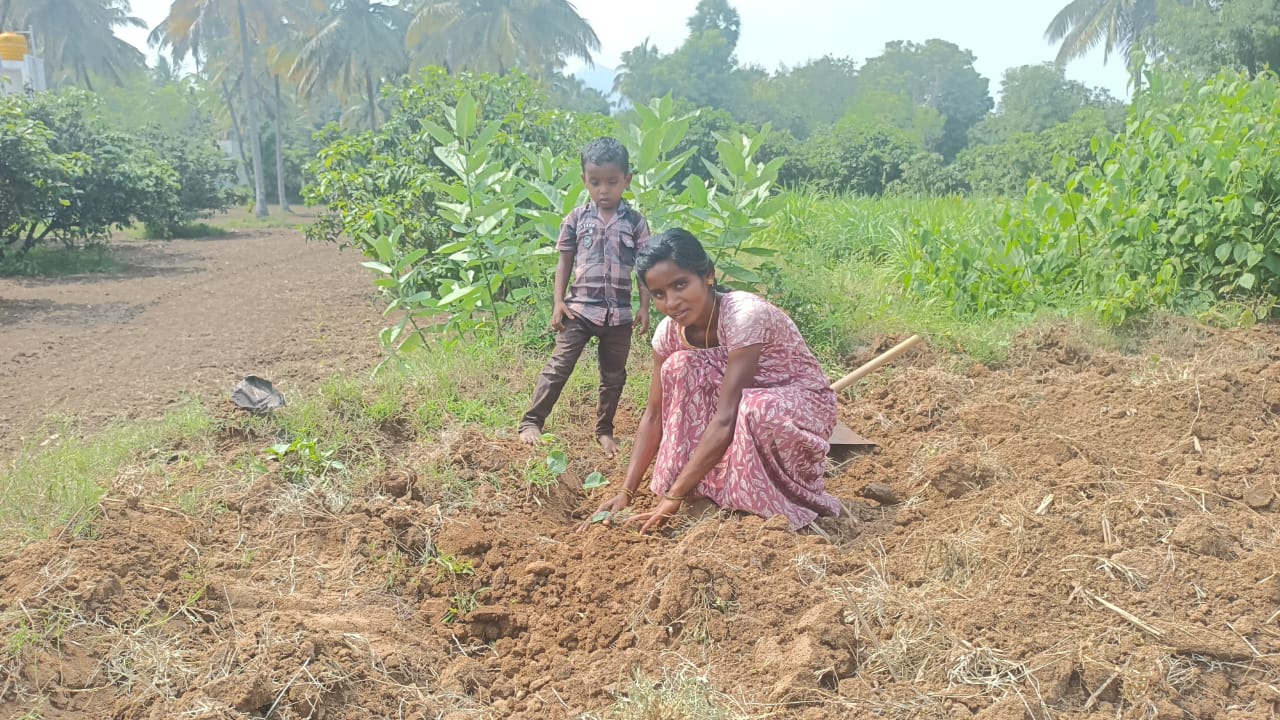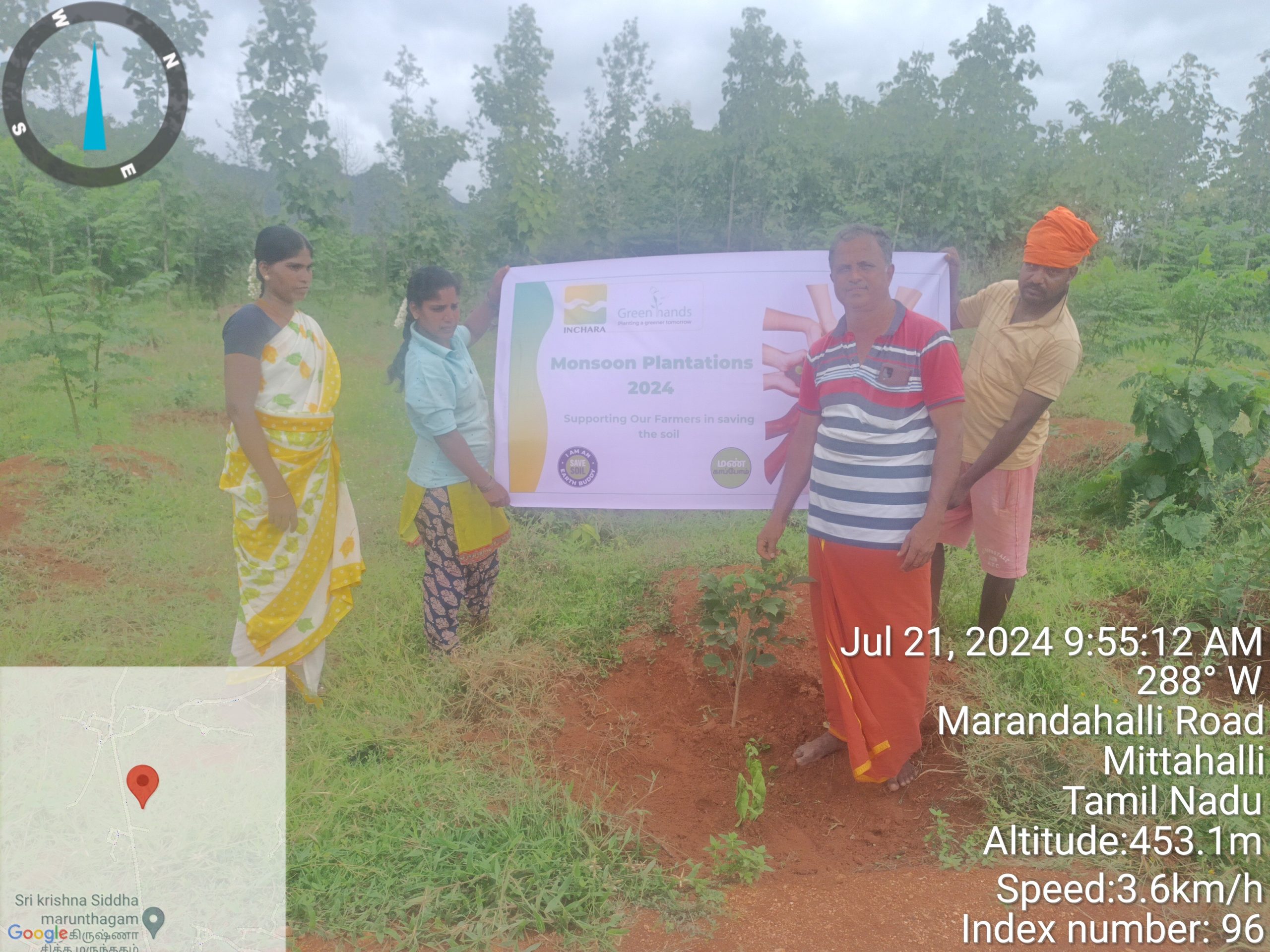
In 2024’s monsoon, Inchara Greenhands team launched Agroforestry Plantations in Tamil Nadu and Madhya Pradesh. The projects aim to support marginalized farmers and promote sustainable agriculture by raising awareness about agroforestry’s benefits, combining fruit and timber trees to diversify their income sources.
During the monsoon season of 2024, Inchara Greenhands team initiated its Agroforestry Plantations project in Krishnagiri district, Tamil Nadu, and Sandalpur village, Dewas district, Madhya Pradesh, with a focus on supporting marginal farmers and promoting sustainable agricultural practices. The goal of the project is to create greater awareness among farmers about the significant benefits of agroforestry, which combines the cultivation of fruit-bearing trees and timber species to diversify farm income.

Agroforestry offers immediate financial returns through fruit production, such as mangoes, guavas, and citrus fruits, while also ensuring long-term income through timber plantations that mature over 10-15 years. This model provides a dual income stream, helping farmers secure financial stability and reduce dependency on single-crop farming, which is often vulnerable to climate extremes. The integration of trees also improves soil health, enhances water retention, and restores fertility, contributing to the long-term sustainability of the land.
In addition to its environmental and economic benefits, the agroforestry initiative plays a crucial role in supporting women farmers. By incorporating less labor-intensive practices, agroforestry helps reduce the burden of manual farm work, allowing women more time for other income-generating activities and household responsibilities. This empowerment of women creates a more equitable and resilient farming community.
Till date, 33,000 agroforestry saplings have been planted across 110 acres, directly benefiting 40 farmers in these regions. The project has not only provided immediate assistance by increasing the farmers’ income but has also set the stage for a more sustainable and ecologically balanced future for these communities. With improved soil health, enhanced biodiversity, and a more diversified income, the initiative is helping these farmers adapt to climate change and secure a better future for themselves and their families.
